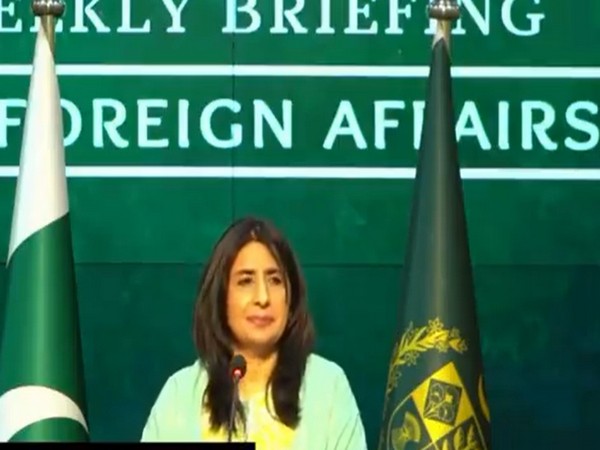In an unusual public rebuke, Chinese Ambassador Jiang Zaidong voiced his concern about Pakistan’s repeated security lapses, which have led to attacks on Chinese nationals in the country. The statement, made at a recent conference in Islamabad, prompted a sharp reaction from Pakistan’s foreign ministry, revealing a rare fissure in the two nations’ traditionally close ties. During the event organized by the Pakistan-China Institute, Ambassador Jiang expressed dissatisfaction with Islamabad’s security measures, calling the protection of Chinese citizens working on China-Pakistan Economic Corridor (CPEC) projects “Beijing’s biggest concern.” He cited two attacks this year alone: one in Karachi in October and another in Khyber Pakhtunkhwa in March, which killed five Chinese engineers. Jiang stressed that such incidents, attributed to Baloch rebels, have become “unacceptable” and urged Pakistan to take “effective remedial measures” to protect Chinese nationals. Jiang warned that failure to ensure a safe environment could hinder the progress of CPEC projects, a crucial element of China’s Belt and Road Initiative (BRI). He demanded action against “all anti-China terrorist groups” and emphasized that a stable security framework is essential for bilateral projects to succeed. His blunt remarks underscored China’s growing frustration over Islamabad’s inability to curb militant activities targeting Chinese nationals. Pakistan’s response was swift but notably defensive.
Foreign Ministry spokesperson Mumtaz Zahra Baloch expressed surprise at Jiang’s public comments, calling them “perplexing” and not reflective of the “positive diplomatic traditions” shared by the two nations. Baloch assured that Chinese citizens are “valued guests” whose contributions to Pakistan’s development are deeply appreciated. She reaffirmed Pakistan’s commitment to the safety of Chinese nationals, citing ongoing investigations and recent statements by Foreign Minister Ishaq Dar on Pakistan’s anti-terrorism efforts. The spokesperson further highlighted Pakistan’s proactive measures to secure CPEC personnel and assets, despite frequent militant attacks. Yet, the strain in communication points to a larger tension underlying Pakistan-China relations, driven by both domestic challenges and shifting geopolitical landscapes.

Cracks in Relations
While Pakistan has been a strong supporter of the CPEC, the project has drawn criticism and violent opposition, particularly from the Balochistan Liberation Army (BLA), which views Chinese infrastructure projects as exploitative. The BLA, which has claimed responsibility for several attacks, asserts that China’s ventures prioritize its own economic interests over local development, turning Balochistan into a battleground for their cause. Over the past decade, 21 Chinese nationals have been killed in targeted assaults across Pakistan, with seven fatalities reported just this year. The recent discord also reflects Beijing’s discontent with Pakistan’s debt management and security delays that have hampered the second phase of CPEC. Pakistan’s ongoing debt crisis, with a significant portion owed to China, has further strained relations. Islamabad’s recent request for debt reprofiling and restructuring of $15 billion in energy sector liabilities has only underscored China’s growing concerns. Meanwhile, Chinese officials, including Minister Liu Jianchao, have reiterated the need for Pakistan to maintain a “safe, stable, and predictable business environment” to ensure the long-term viability of CPEC. In recent years, Pakistan’s foreign policy manoeuvring has also sparked concern in Beijing. Prime Minister Shehbaz Sharif has sought to repair ties with the United States, emphasizing that Islamabad’s engagement with Washington will not compromise its partnership with China. However, as strategic competition between the U.S. and China intensifies, Pakistan may face increased pressure to balance its alliances. For Beijing, any overt shift toward Washington could be seen as a potential threat to its investments and strategic interests in Pakistan. Adding complexity to the bilateral equation, anti-China sentiment has been on the rise within certain Pakistani regions, particularly Balochistan, where local communities have increasingly protested what they perceive as China’s encroachment on their resources and land. In response, Pakistan recently launched a new military campaign, Azm-i-Istehkam (Resolve for Stability), to combat militancy in areas prone to unrest. The campaign, however, highlights the security challenges that have become a significant stumbling block in Pakistan’s relations with China, as failure to protect Chinese personnel could further undermine their partnership. While China remains Pakistan’s largest defense partner, supplying over 80% of its arms in recent years, the growing security concerns, compounded by Islamabad’s shifting diplomatic priorities, suggest that their alliance may face further strain. As China presses for stronger security assurances, Pakistan’s strategic balancing act between its two major partners—the U.S. and China—has become increasingly precarious.
Author Profile
- India Writes Network (www.indiawrites.org) is an emerging think tank and a media-publishing company focused on international affairs & the India Story. Centre for Global India Insights is the research arm of India Writes Network. To subscribe to India and the World, write to editor@indiawrites.org. A venture of TGII Media Private Limited, a leading media, publishing and consultancy company, IWN has carved a niche for balanced and exhaustive reporting and analysis of international affairs. Eminent personalities, politicians, diplomats, authors, strategy gurus and news-makers have contributed to India Writes Network, as also “India and the World,” a magazine focused on global affairs.
Latest entries
 DiplomacyJanuary 5, 2026India walks diplomatic tightrope over US operation in Venezuela
DiplomacyJanuary 5, 2026India walks diplomatic tightrope over US operation in Venezuela India and the WorldNovember 26, 2025G20@20: Africa’s Moment – The Once and Future World Order
India and the WorldNovember 26, 2025G20@20: Africa’s Moment – The Once and Future World Order DiplomacyOctober 4, 2025UNGA Resolution 2758 Must Not Be Distorted, One-China Principle Brooks No Challenge
DiplomacyOctober 4, 2025UNGA Resolution 2758 Must Not Be Distorted, One-China Principle Brooks No Challenge India and the WorldJuly 26, 2025MPs, diplomats laud Operation Sindoor, call for national unity to combat Pakistan-sponsored terror
India and the WorldJuly 26, 2025MPs, diplomats laud Operation Sindoor, call for national unity to combat Pakistan-sponsored terror








